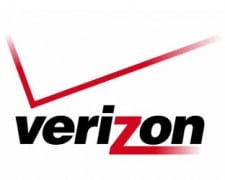 Telecom giant Verizon has been given the FCC go-ahead to acquire spectrum from a consortium of cable companies. Although all five commissioners approved the deal, only three supported some of the conditions.
Telecom giant Verizon has been given the FCC go-ahead to acquire spectrum from a consortium of cable companies. Although all five commissioners approved the deal, only three supported some of the conditions.
Verizon has already spun off spectrum to rival T-Mobile. In addition, it has promised to make data roaming available to competitors and consumers; to accelerate build-out of the newly acquired spectrum; to continue the build-out of its FiOS MVPD system; and to assure that any agreements with cable companies are pro-consumer and not anti-competitive.
FCC Chairman Julius Genachowski made it clear that the decision wasn’t entirely unanimous despite the 5-0 vote to approve the deal. “Two of my colleagues disagree with important elements of the Commission’s order,” he said. “Although a large number of businesses and public interest groups raised strong concerns and urged Commission action, my colleagues would not have adopted conditions relating to broadband roaming, they would not have reviewed or worked to revise the commercial agreements, and it is unclear whether they would have sought any spectrum divestitures. But protecting competition and incentives to build out wired and wireless broadband is core to the FCC’s statutory responsibilities. Competition is at the heart of our free-market economy, and broadband infrastructure deployment is key to economic growth, job creation, and our global competitiveness. The Commission makes the right choice today in exercising our responsibilities and taking strong action based on a rigorous review.”
Communications Workers of America continued to voice opposition to the deal. It stated, “The FCC’s decision allowing Big Cable to virtually monopolize wireline and video connections to millions of homes will lead to job loss and hit consumers with higher prices. It will slam the door on our country’s high speed future because it has destroyed any incentive for Verizon to continue the build out of its high speed FiOS network. It is clearly an example of the FCC, just as the Department of Justice did last week, acting on behalf of corporate interests, not the public interest and clearly not jobs.”





